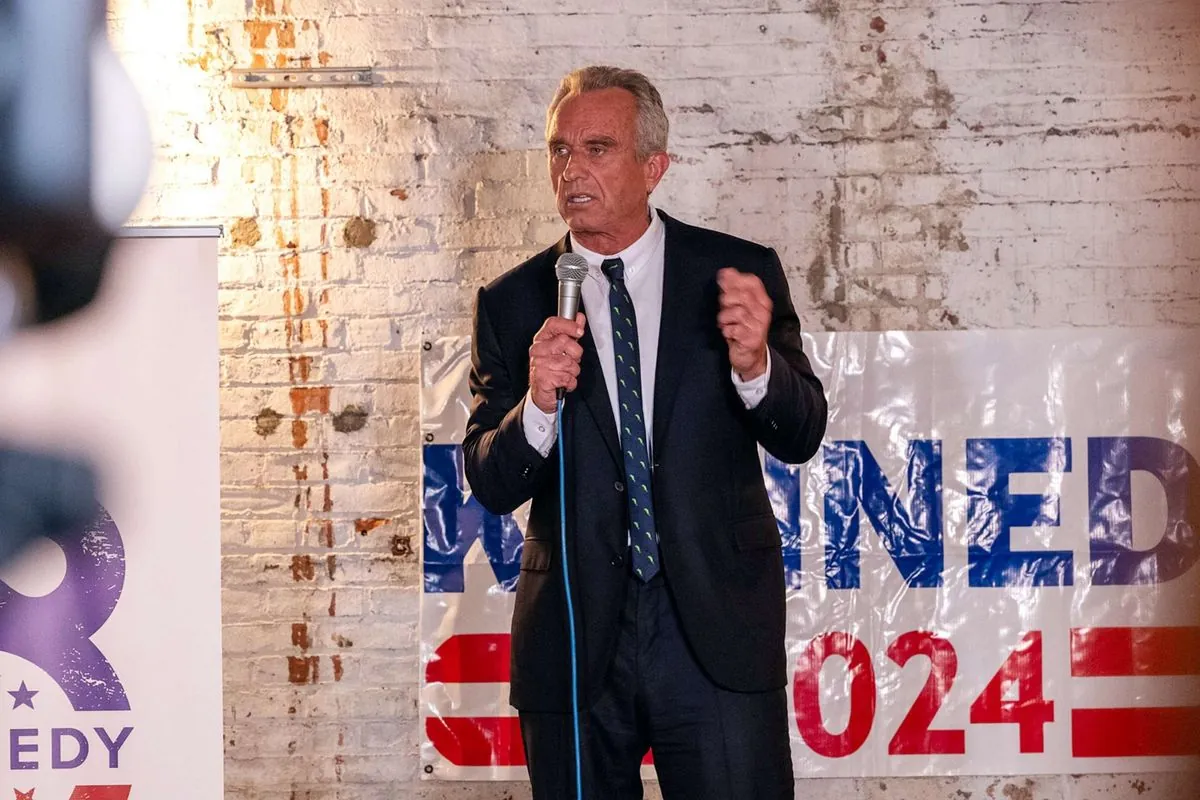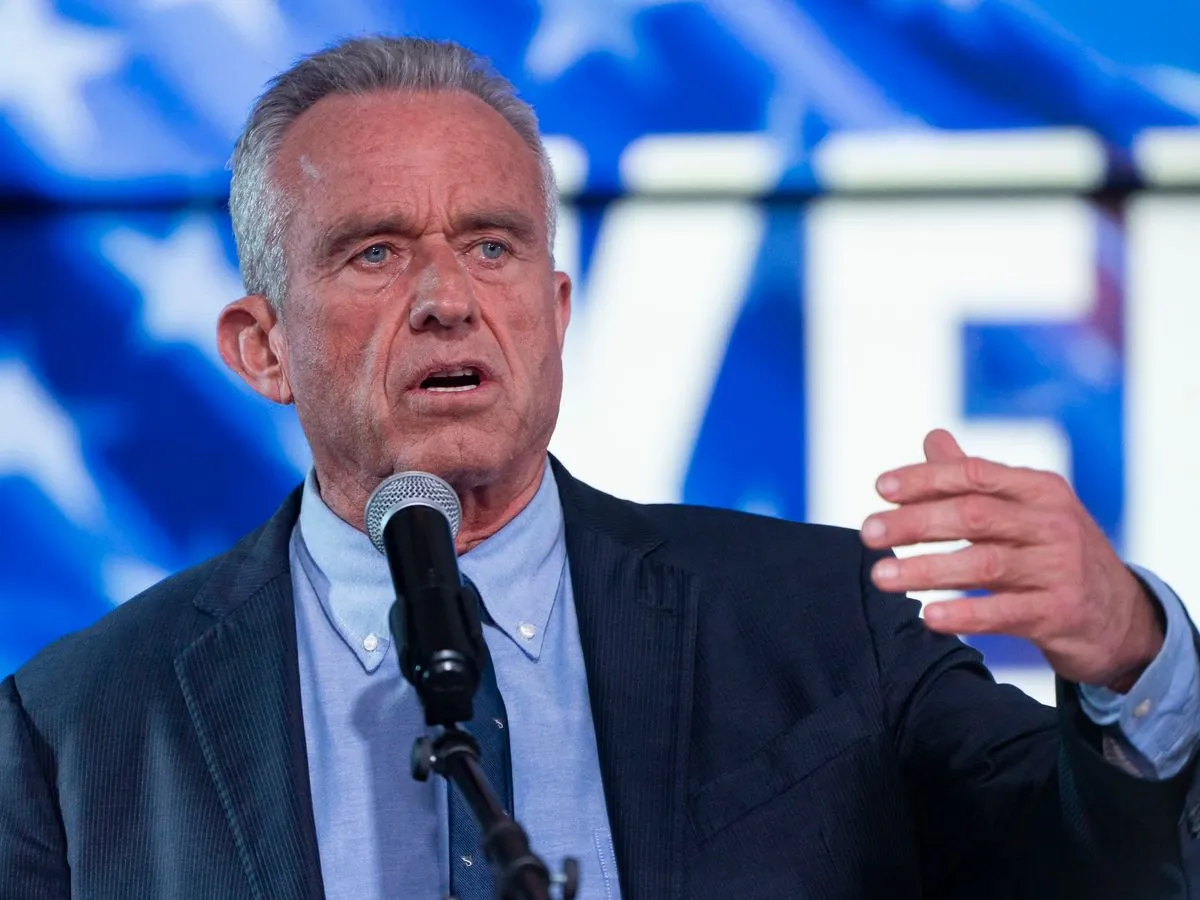Kennedy's Presidential Bid Faces Multi-State Ballot Challenges
Robert F. Kennedy Jr.'s independent presidential campaign encounters legal hurdles in New York and other states. Appeals and federal intervention sought as Democrats and Republicans express concerns.

Robert F. Kennedy Jr.'s independent presidential campaign is facing significant challenges across multiple states, with a recent New York court decision potentially setting a precedent for other jurisdictions. The ruling, which invalidated Kennedy's petition to appear on the New York ballot, has prompted his campaign to pursue legal remedies and could have far-reaching implications for his nationwide candidacy.
In early August 2024, New York State Supreme Court Justice Christina Ryba ruled that the address Kennedy provided on his nominating petitions was a "sham" residence. The judge determined that Kennedy's actual home is in Los Angeles, where he resides with his wife, actress Cheryl Hines, known for her role in "Curb Your Enthusiasm." This decision has led to Kennedy's legal team filing an appeal on August 7, 2024, and seeking federal court intervention.
The campaign asserts that it has gathered sufficient signatures for ballot access in all 50 states and claims to be officially on the ballot in 17 states. However, challenges to Kennedy's petitions have emerged in over half a dozen states, with some alleging issues related to the same New York address that was the subject of litigation.

Kennedy's candidacy has raised concerns among both Democrats and Republicans, who fear he might draw votes away from their respective nominees. The Democratic National Committee, in particular, has been actively working to undermine his campaign, backing challenges to his petitions in Nevada, Delaware, and Georgia.
The U.S. Constitution grants individual states broad authority to oversee elections, which has led to varying ballot access laws across the country. Independent candidates often face more stringent requirements compared to major party nominees. The ongoing legal battles highlight the complexities of the American electoral system and the challenges faced by third-party and independent candidates.
"The party of my father and uncle's time was committed to expanding voters' rights and understood that competition at the ballot box is an essential part of American Democracy."
As the son of Robert F. Kennedy and nephew of John F. Kennedy, Robert F. Kennedy Jr. comes from a family with a long history in American politics. His campaign argues that the U.S. Constitution's 12th Amendment, which governs the residency of presidential and vice presidential candidates, should take precedence over state law in determining ballot eligibility.
The outcome of these legal challenges could have significant implications for the 2024 presidential election. With hearings scheduled in various states, including an evidentiary hearing in Pennsylvania on August 20, 2024, and proceedings in Georgia beginning on August 19, 2024, the coming weeks will be crucial for Kennedy's campaign.
As the election approaches, the impact of these ballot access challenges on Kennedy's candidacy and the broader political landscape remains to be seen. The situation underscores the complexities of running as an independent candidate in the United States and the ongoing debate over ballot access laws.


































